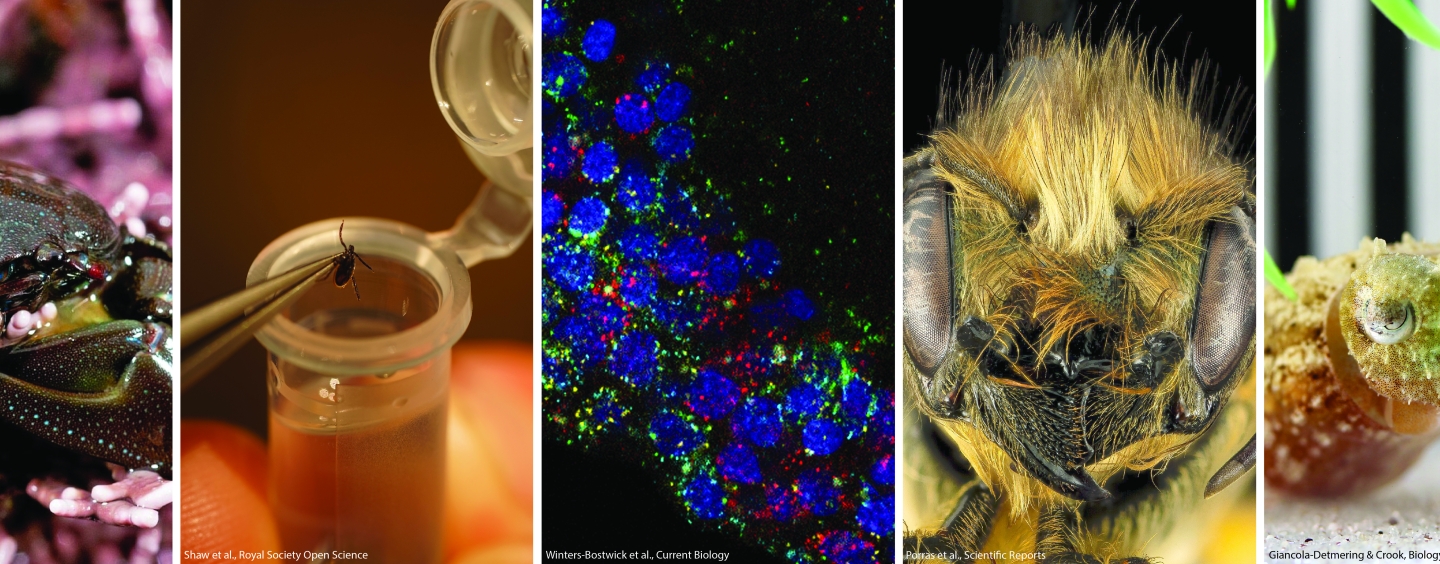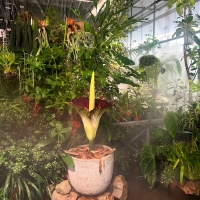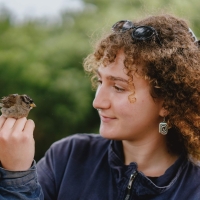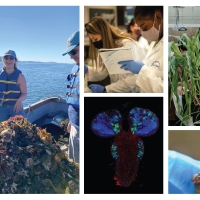2024 Research Highlights

In 2024 our faculty and students published over 60 ground-breaking research articles, across a wide range of disciplines. In many cases, papers are authored by SF State Bio undergraduate and Masters student researchers, working under the mentorship of our department faculty.
Every paper we publish advances the frontier of Biology, and we're incredibly proud of the work of our faculty as they mentor and support the next generation of Biologists. Here are a few publications from our early-career researchers that we think are especially notable:
Masters student Cesar Estrada Aguila (now graduated), and Professor Jonathon Stillman published Escape temperature of the intertidal zone porcelain crab Petrolisthes cinctipes does not acclimatize to temperature, but is dependent on body condition, reproductive status and injuries in the Journal of Experimental Marine Biology and Ecology. This study reveals important new insights into the complexity of individual organismal responses to climate change, and suggests that animals that are already dealing with intrinsic stressors may be more severely affected by increasing climate variability. The Stillman Lab at SF State is renowned for its work on the intertidal zone as a particularly vulnerable habitat in changing climates, and this study continues their ground-breaking work.
Masters student Grace Shaw (now graduated), and multiple student authors from the Swei Lab published The roles of habitat isolation, landscape connectivity and host community in tick-borne pathogen ecology in Royal Society Open Science. This study demonstrated that habitat patch size and isolation as well wildlife biodiversity affect the prevalence and risk of tick-borne diseases.
Masters Student (now graduated) Diana Neacsu and Postdoctoral Fellow Gabrielle Winters-Bostwick published two paired papers in Current Biology, both describing three-dimensional structure of the octopus arm nervous system. Both papers, Three-dimensional molecular atlas highlights spatial and neurochemical complexity in the axial nerve cord of octopus arms and Repeating ultrastructural motifs provide insight into the organization of the octopus arm nervous system, were featured by multiple news outlets. Read the SF State News story about these studies!
New faculty member, Assistant Professor Mitzy Porras published Fungicide ingestion reduces net energy gain and microbiome diversity of the solitary mason bee in Scientific Reports. This study shows that solitary mason bees, vitally important crop pollinators across the US, are affected negatively by fungicides, despite these widely-used chemicals being marketed as bee-safe. We are delighted to welcome Dr. Porras to SF State Bio!
Masters student Sarah Giancola-Detmering and Associate Professor Robyn Crook published Stress produces negative judgement bias in cuttlefish in Biology Letters. This study provides the first evidence the cuttlefish, cephalopods important for neuroscience and behavioral research, are capable of experience negative affect as a result of sub-standard (but common) husbandry and housing practices. The Crook Lab at SF State is recognized as a world leader in studies of cephalopod welfare, and continues to advance understanding of the cognitive and emotional capacity of these fascinating animals.



